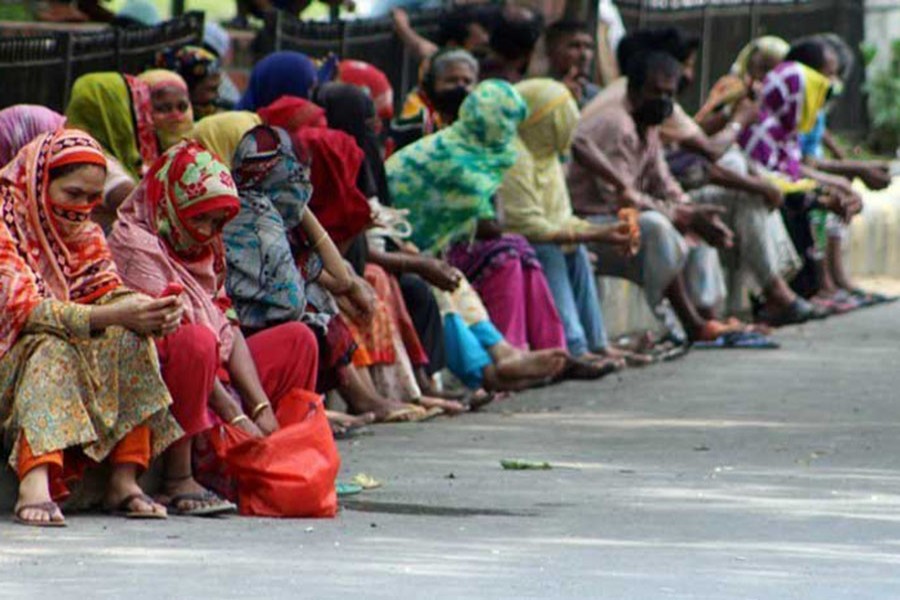Speakers at a programme on Thursday urged the authorities concerned to expand the coverage of social safety net programmes to safeguard the workers hit hard by the pandemic.
They also said it is more important than the protection of labour rights as the pandemic has left many people jobless, resulting in a sharp decline in their incomes.
The suggestions came at a webinar titled 'Spirit of May Day: Social and Rights Protection of Labours during the Pandemic' organised by Bangladesh Institute of Labour Studies (BILS)
Presided over by BILS vice-chairman Anwar Hossain, the programme was also addressed by Department of Inspection for Factories and Establishments (DIFE) Inspector General Md. Nasir Uddin Ahmed, Directorate of Labour director Giasuddin Ahmed, BILS executive director Nazrul Islam Khan, Sramik Karmachari Oikya Parishad (SKOP) co-convener and Jatiya Sramik League President NurKutubAlamMannan, and Jatiya Sramik Federation President Kamrul Ahsan.
The BILS executive director said many workers have lost their jobs during the pandemic and the majority of them were employed in informal sectors as job protection is rare.
He suggested that the government should take initiatives to compensate these workers under various social safety net programmes as they are really struggling to survive.
The DIFE inspector general said the crisis management committee of the DIFE instructed the Trading Corporation of Bangladesh (TCB), which sells daily commodities at subsidised rate, to increase its operation in the areas where working class people mostly live.
Mr Ahmed also said the DIFE always tries to resolve the problems through the help line on a priority basis.
All the stakeholders--employers, buyers, workers, rights groups and government-- need to work together to make a better living for the workers, he added.
The BILS vice-chairman urged the government to take steps to inoculate the workers on a priority basis as they have been working during the pandemic putting their life at risk.
He called on trade union leaders to create awareness among the workers about the necessity of vaccination.
Mr Hossain also called for introducing food ration for the workers and establishing a dedicated specialised hospital for them.
In his presentation, BILS deputy director Md Monirul Islam said according to the ILO, at least 3.0 per cent people of the country's labour force had lost their jobs in last one year.
During the period between March 2020 and September 2020, over 0.4 million Bangladeshi expatriate workers had lost their jobs.
Around 24.5 million people had become 'new poor' as they fell below the poverty line in last one year.
"But there is no database in the country to measure how many workers have become jobless or dealing with income loss," he said.


